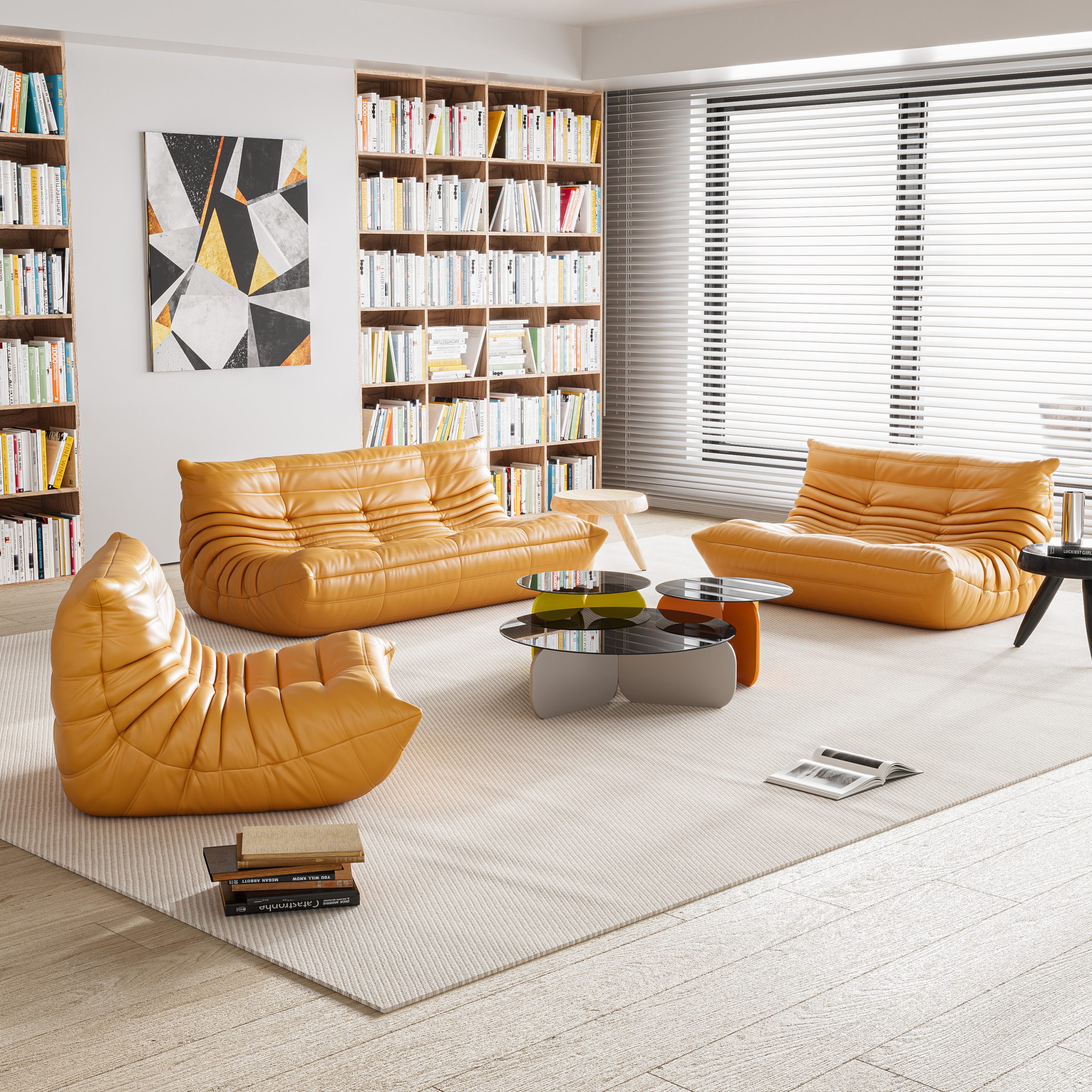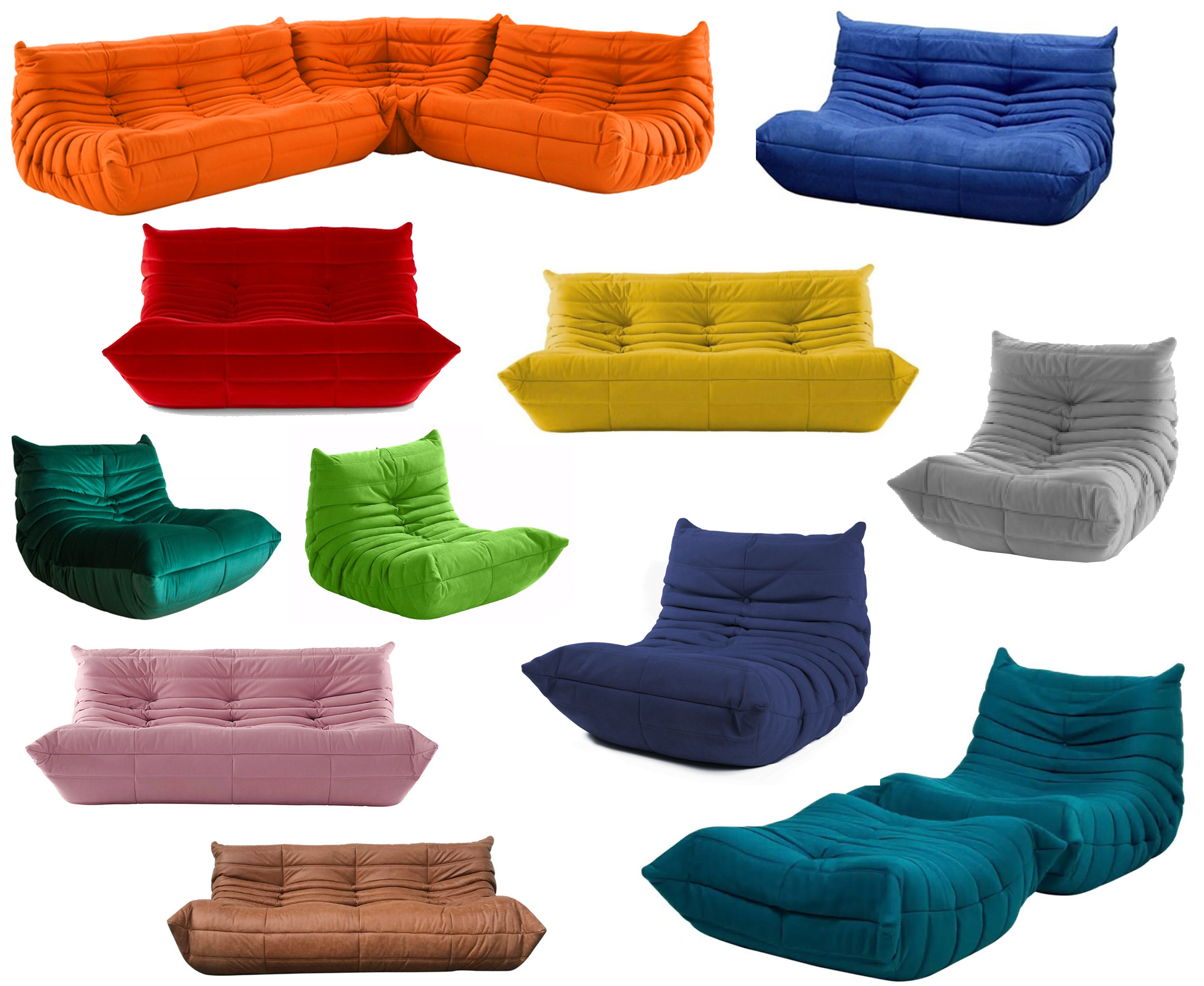Introduction
Lligne roset togo sofa – In the realm of furniture design, few pieces have achieved the same level of iconic status and unwavering popularity as the Togo Sofa by Ligne Roset. Since its inception in 1973 by French designer Michel Ducaroy, this avant-garde creation has transcended generations, becoming a symbol of modern luxury and unparalleled comfort. This article delves into the unique features, enduring appeal, and cultural significance of the Togo, exploring why it remains a coveted piece in contemporary interiors worldwide.
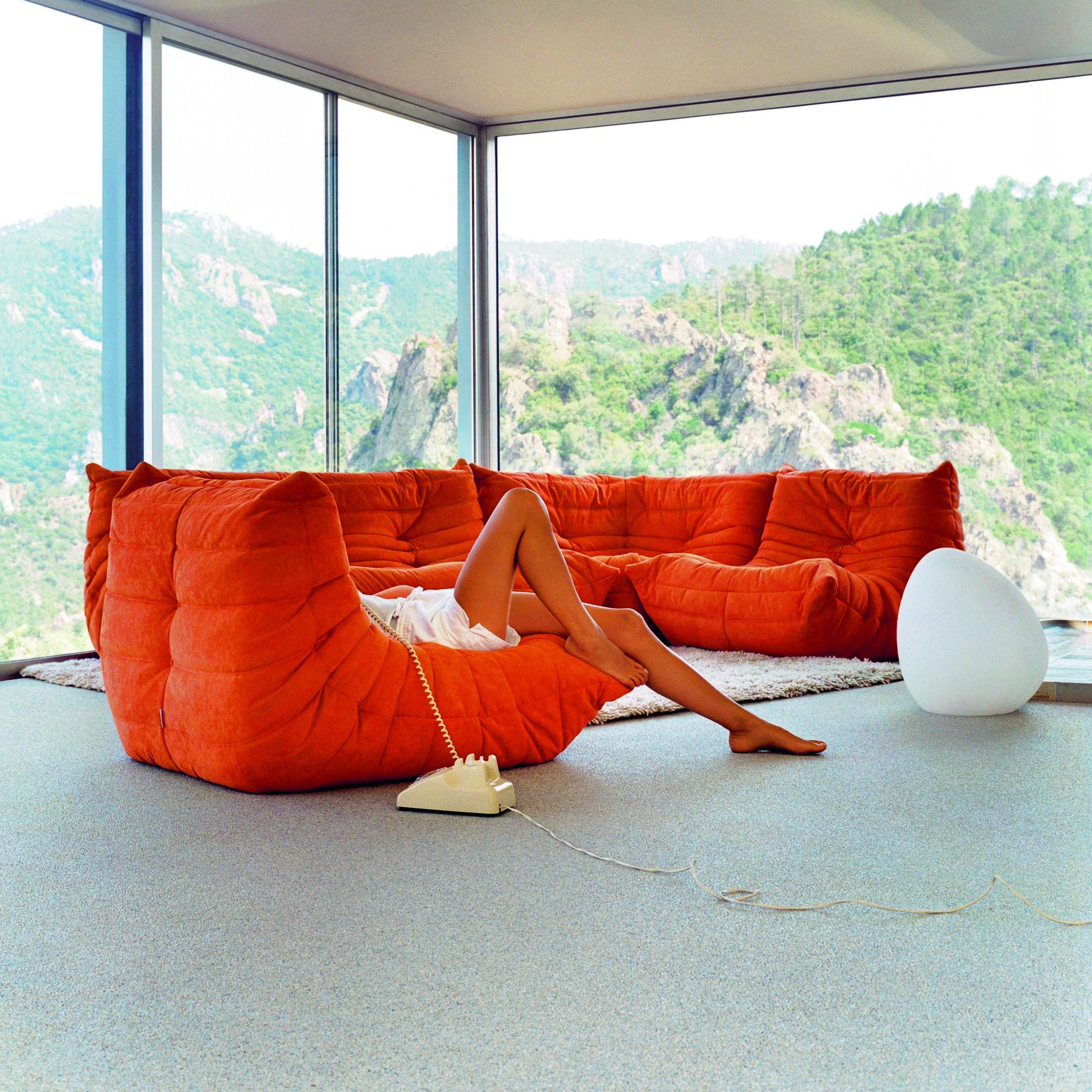
The Birth of a Design Classic:
Michel Ducaroy’s vision for the Togo Sofa was revolutionary for its time, challenging traditional design norms with its organic, modular shape and unconventional use of materials. Unlike the structured, formal sofas prevalent during the early ’70s, the Togo featured a low-slung silhouette, rounded edges, and an inviting, enveloping form that invited users to sink in and relax. Its design was inspired by the human body, aiming to provide ergonomic support and unparalleled comfort.
Unconventional Materials and Construction:
One of the Togo’s defining characteristics lies in its innovative construction. The sofa is crafted using high-density polyurethane foam, a material that was relatively new in furniture design when it was introduced. This dense yet flexible foam allows for the sofa’s unique, almost sculptural shapes, providing both structure and flexibility. The cover, available in a range of fabrics and leathers, is removable for easy cleaning, ensuring the longevity of the piece. This combination of materials and design makes the Togo incredibly durable and adaptable to various lifestyles.
Modularity and Versatility:
Another aspect that contributes to the Togo’s timeless appeal is its modularity. The sofa is available in various configurations, from single armchairs to sprawling sectional arrangements, allowing it to fit seamlessly into any space, from compact apartments to spacious living rooms. This versatility, combined with a wide range of color options, ensures the Togo can be customized to suit individual tastes and interior styles, from minimalist to maximalist.
Cultural Impact and Enduring Legacy:
Over the decades, the Togo Sofa has become a staple in popular culture, gracing the pages of design magazines, featuring in films and TV shows, and adorning the homes of design enthusiasts globally. Its presence signifies not just an appreciation for design but also a certain lifestyle – one that values comfort, creativity, and a touch of playful eccentricity. As a testament to its enduring design, the Togo continues to be produced by Ligne Roset, with no significant alterations since its original conception, a rarity in an industry prone to constant reinvention.
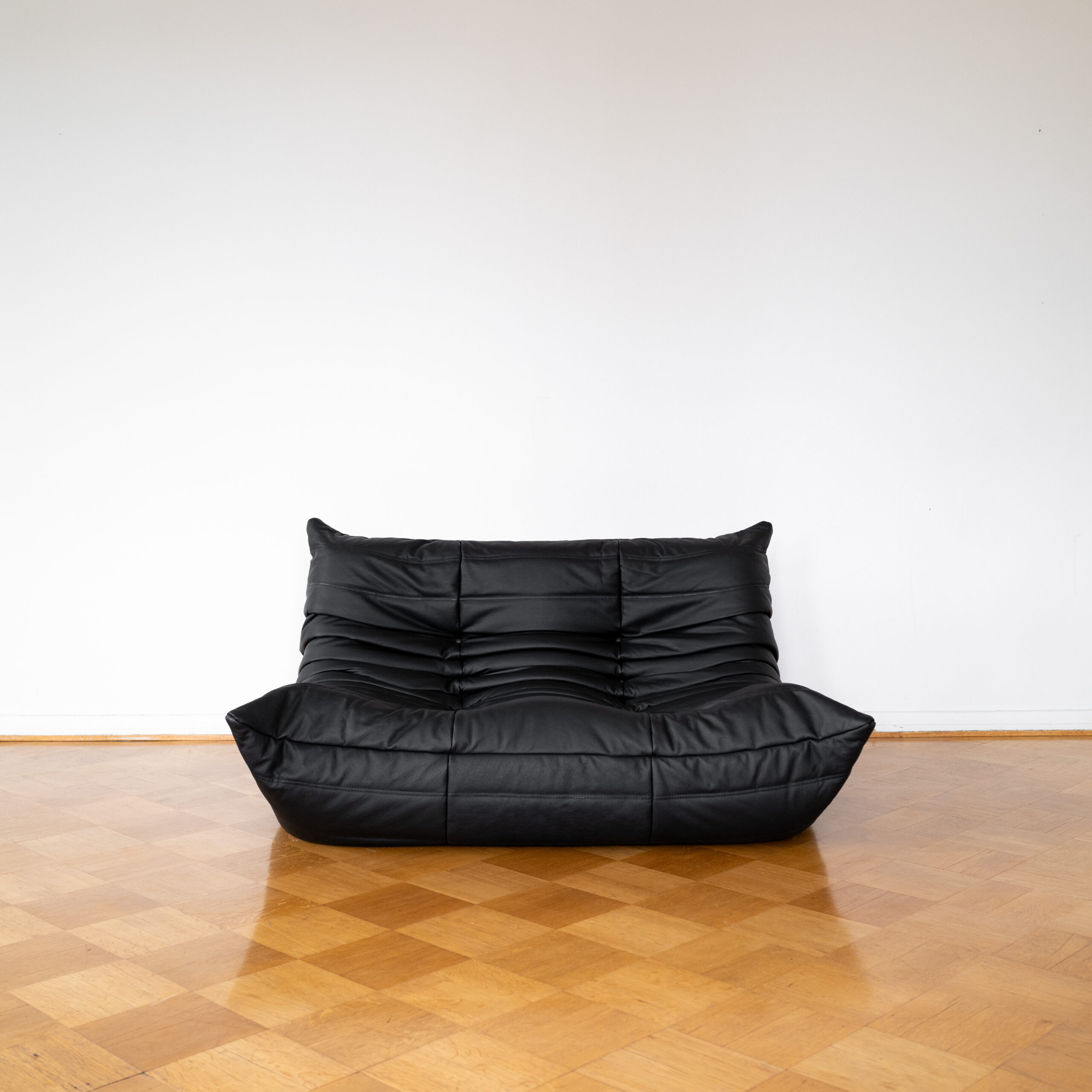
Design Evolution and Adaptability:
Despite remaining largely unchanged in its design since 1973, the Togo Sofa’s enduring appeal lies in its adaptability to changing design trends. While other furniture designs may fade with passing fashions, the Togo’s unique aesthetic has allowed it to remain a relevant and sought-after piece. Its ability to blend into various design schemes, whether mid-century modern, minimalist, or even eclectic, showcases the sofa’s timeless quality. As design movements ebb and flow, the Togo’s organic form and comfortable embrace continue to resonate, making it a versatile choice for homeowners and designers alike.
Sustainability and Durability:
In an era where sustainability is increasingly important, the Togo Sofa stands out as a testament to thoughtful, long-lasting design. The use of high-quality materials and expert craftsmanship ensures that each sofa can withstand years of use, reducing the need for frequent replacements. Moreover, the option to re-cover the sofa extends its lifespan further, encouraging a circular approach to consumption. By investing in a piece like the Togo, buyers contribute to a more sustainable lifestyle, valuing quality over disposable fast furniture.
Emotional Connection and Personal Expression:
Beyond its physical attributes, the Togo Sofa fosters an emotional connection with its owners. Its inviting form encourages relaxation and social interaction, making it the centerpiece of countless family gatherings, movie nights, and quiet reading sessions. The sofa becomes a canvas for personal expression, with each choice of fabric or configuration reflecting the owner’s taste and lifestyle. This emotional resonance elevates the Togo beyond mere furniture, transforming it into a cherished element within the home.
The Togo in Contemporary Context:
In today’s design landscape, the Togo Sofa continues to inspire and influence. As open-plan living spaces and flexible, multipurpose rooms gain popularity, the modular nature of the Togo fits perfectly into these dynamic environments. It offers a flexible solution for creating cozy corners, dividing spaces, or accommodating large groups without sacrificing style. Additionally, with the rise of remote working, the Togo’s comfort and ergonomic design make it an ideal addition to home offices, providing a comfortable spot for breaks or informal meetings.
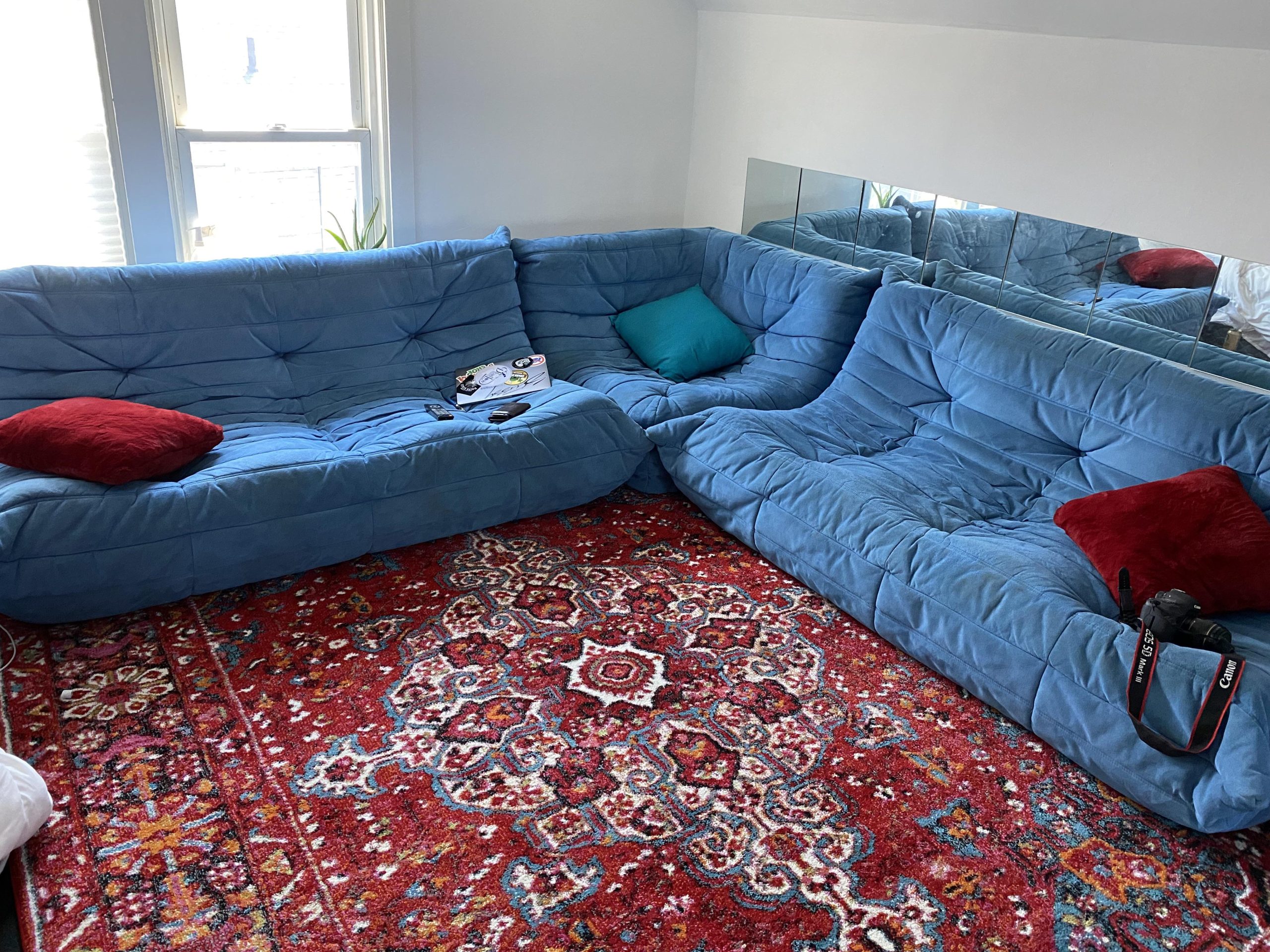
Design Evolution within Tradition:
While the Togo Sofa’s design has remained virtually unchanged since its inception, its enduring appeal lies in how it continues to resonate with evolving design sensibilities. In an era where minimalism and clean lines often dominate, the Togo stands out as a bold reminder of the power of organic forms and maximalist expression. It challenges the notion that contemporary design must be stark and uninviting, proving that comfort and aesthetic appeal can coexist harmoniously.
Sustainability and the Future of Iconic Designs:
In today’s environmentally conscious climate, the longevity and adaptability of the Togo Sofa speak to a growing emphasis on sustainability in design.
The Togo Sofa in Interior Design Trends:
As interior design trends ebb and flow, the Togo consistently finds a place within diverse styles. In recent years, there has been a resurgence of interest in ’70s and ’80s aesthetics, with designers and homeowners embracing retro-futuristic designs and bold hues. The Togo, with its retro roots and forward-thinking design, fits perfectly into this revival. However, its versatile nature also allows it to complement more understated, contemporary settings, where it acts as a statement piece amidst neutral palettes and sleek lines.
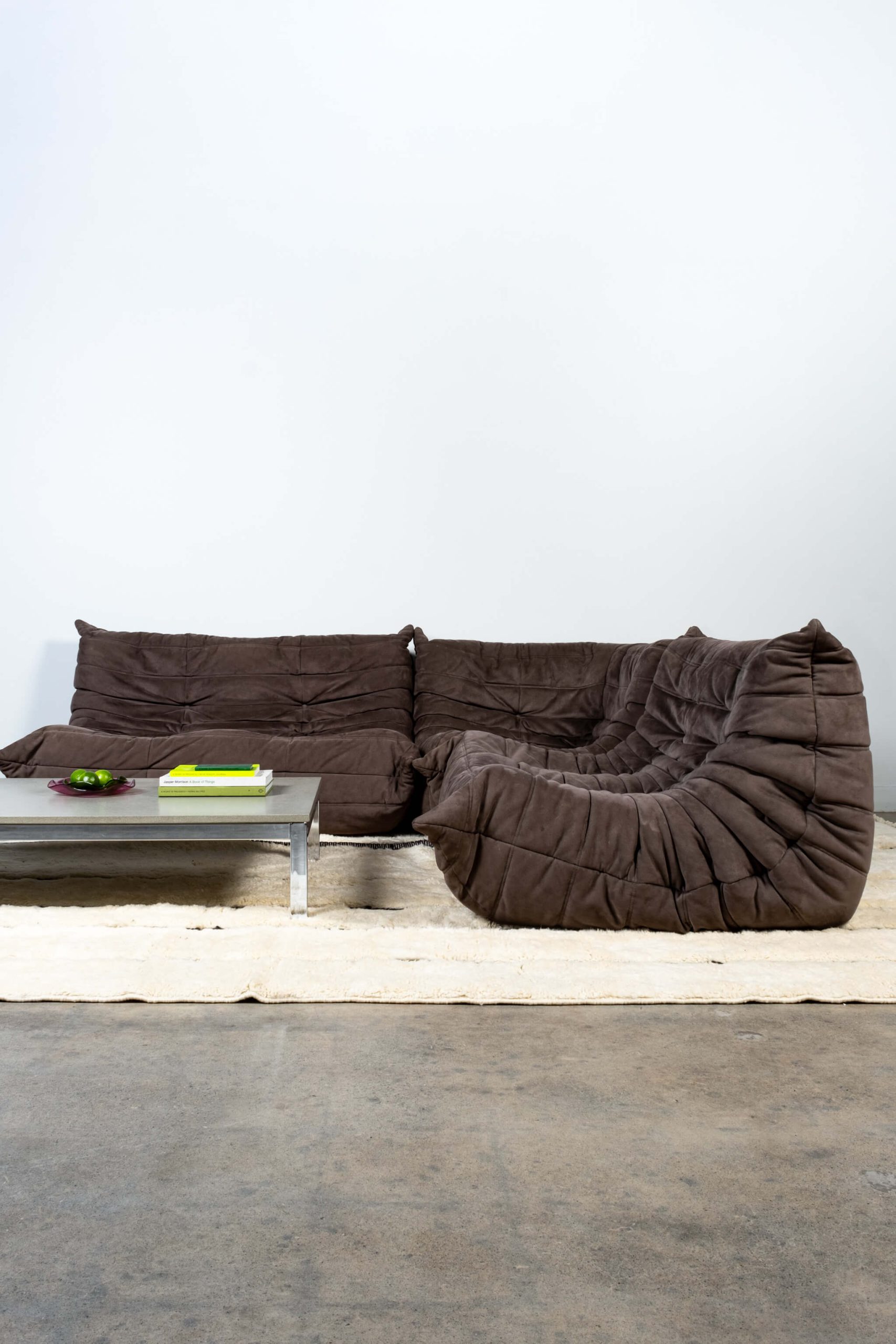
Conclusion:
The Ligne Roset Togo Sofa is more than a piece of furniture; it’s a design icon that embodies the essence of modern living. Its ability to combine comfort, functionality, and aesthetics in a truly innovative way has solidified its place in design history. Whether viewed as a statement piece or a cozy retreat, the Togo sofa remains a symbol of timeless elegance and a celebration of the union between artistry and practicality. For those seeking to infuse their living spaces with a touch of design brilliance, the Togo offers a timeless solution that promises to be as cherished tomorrow as it is today.
